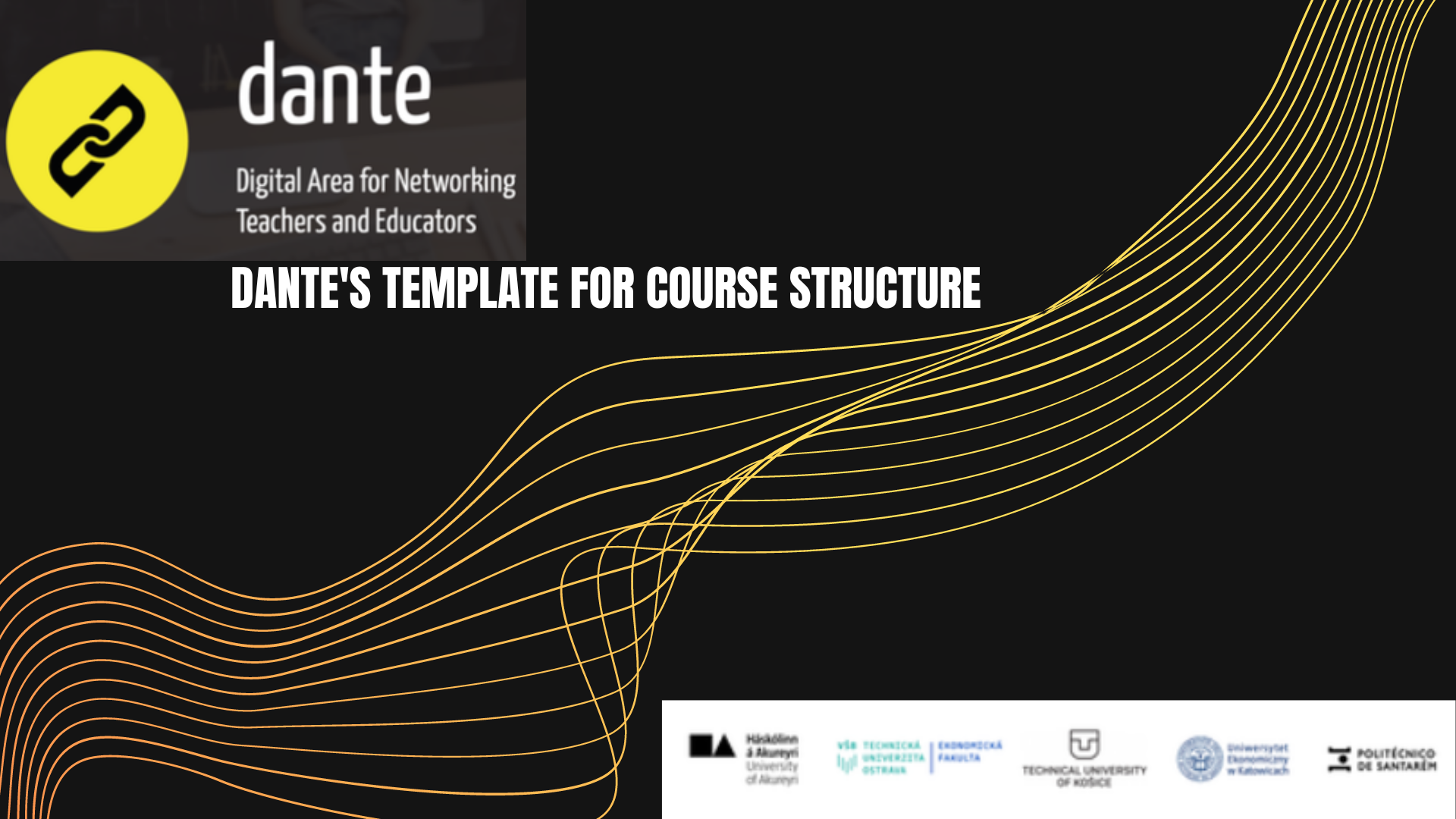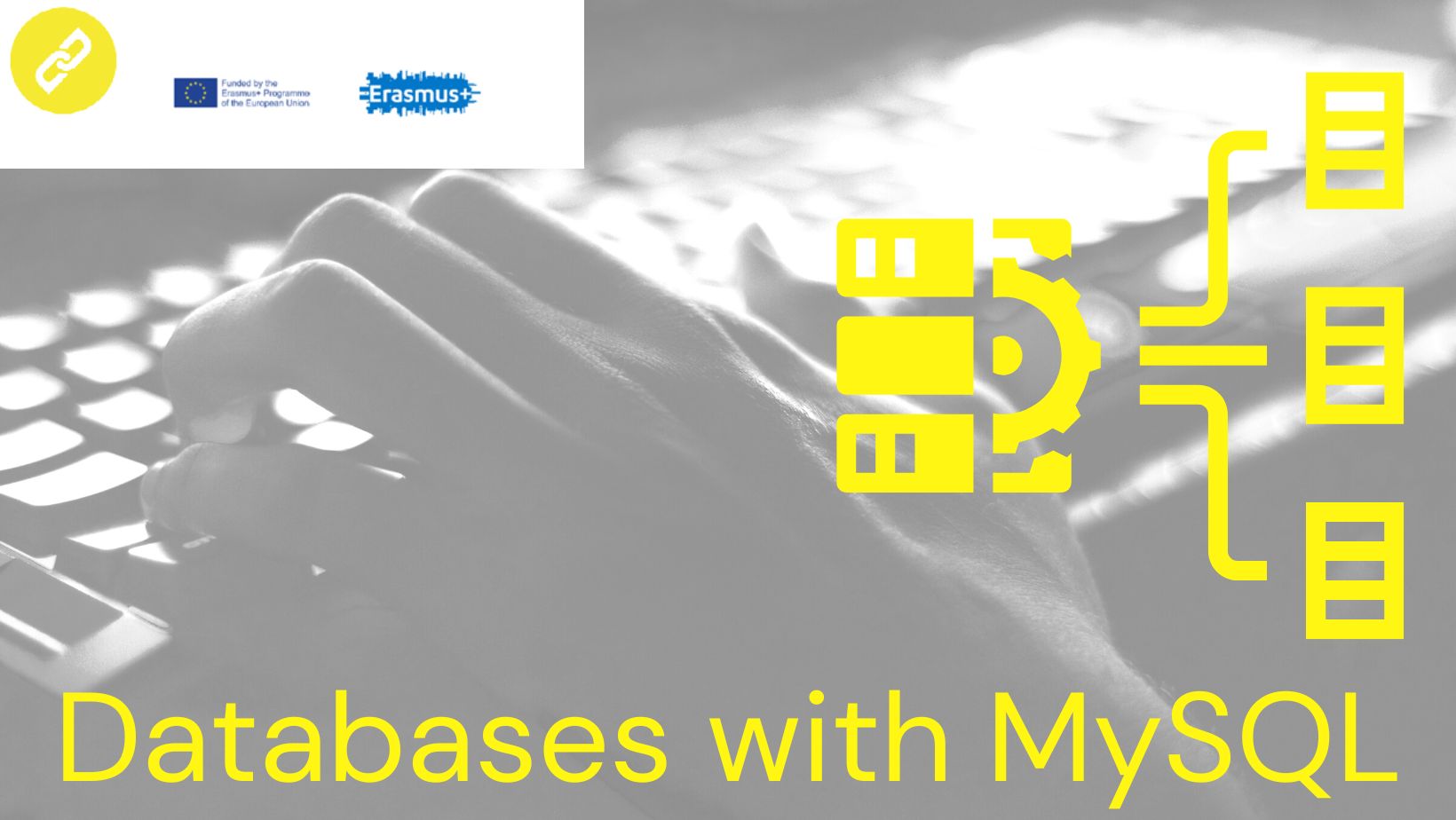
These are DANTE online courses that cover different topics. They are designed to help individuals gain knowledge and skills, specifically in Economics and Management. The courses include creating effective online courses, capital budgeting, business valuation, logistics, sustainability, databases, project management, European Union integration, and data analysis using MS Excel. The courses offer tools, examples, and case studies to help students understand and apply the concepts. They are suitable for business students and anyone who wants to improve their knowledge in these areas.
For downloading the particular empty courses, click here!
This sample online course is designed to comprehensively understand the various guidelines and principles developed for creating effective online courses within DANTE Erasmus+ project. The course is divided into four modules, each covering a range of topics related to the course structure, IT environment, and communication with students, among other things. By the end of the course, you will have gained a deep insight into the process of structuring and specifying the final online course, including how to create a News/Information Forum, a calendar, and tasks information book, and how to use various tools like template documents in the DANTE folder, a communication area with real-time sessions via chat and forum/questions, teacher and student presentation files, and an assiduity tool to register student presence.
The course activities include a range of internal and external Moodle tools, such as books, URLs, discussion forums, files, quizzes, and assignments. Furthermore, you will find examples of template files, a flipped classroom page, a project-based learning page, and a section on active learning methodologies. Finally, there is a face-to-face class module and an evaluation module to help you assess your progress and identify areas for improvement.
Overall, this sample online course is an excellent resource for anyone interested in developing an engaging, effective, and highly informative online course. Whether you are an experienced teacher or a novice in the field, this course will provide the knowledge and skills you need to create a successful online learning experience for your students.

The subject builds on the methods, reasoning and skills acquired during the
bachelor's studies in finance, banking and investing, especially
in accounting, statistics and informatics (working with financial mathematics,
using functions in MS Excel, etc.). To thoroughly master the principles of
capital budgeting, it is necessary to combine work in MS Excel and with
specialised statistical software (add-ons) for MS Excel (or other software). After
completing the course, the student should:
- be able to process the financial plan of capital investment in the company as
well as process its evaluation with possible recommendations,
- be able to create and apply a suitable investment evaluation tool to
understand its advantages and disadvantages,
- understand the attributes of the project implementation environment, related
to, for example, taxation, changes in the price level, creation of the level of
required profitability or risks applied,
- understand modifications of the designed tool using analytical approaches to
take uncertainty conditions into account,
- master the MS Excel environment and its add-ons for processing individual
calculations and analyses in capital planning and investment project decision-making.
In the subject, students acquire financial reasoning, process and model financial data, and estimate the development of certain projects
and cash flows. The acquired knowledge and skills are necessary for the
analysis and processing of data within the company and the preparation of its
investment projects, especially in financial management.

How do different types of investors think about an investment opportunity? What kind of securities and contracts do they offer? How should a company decide what is a "good deal"? This course introduces you to the challenges and pitfalls of financing enterprises. You will learn the basic tools for evaluating companies, including using discounted cash flow analysis in Excel and understanding how to apply this model to your entrepreneurial venture. You will then learn how valuation works with different types of securities investors use to finance their enterprises.

Transport and logistics play a crucial role in the global economy. Multimodal transport involves the use of different transportation modes, each with their unique characteristics, to optimize global logistics. Effective supply chain management is essential for businesses to remain competitive. The history and evolution of supply chain management have led to the expectations of one-day shipping in global logistics. Information and Communication Technologies (ICT) are transforming the industry, with data-driven economies becoming the norm. The influence of ICT on transport and logistics can be seen in the case study of Warehouse Management Systems and the use of Big Data in logistics, as demonstrated by Amazon.

This online course covers a range of topics related to sustainability, including basic concepts, the history of sustainable development, and the Millennium Development Goals. It also explores a model of the Doughnut of social and planetary boundaries and discusses sustainable development in the context of transport and logistics. The course considers the external costs of transport and a sustainable transport system, as well as EU transport policy and the Sustainable Development Goals. Participants will learn about the role of ICT in sustainable transport and logistics, including data-driven transport policy. The course also includes a case study on the EcoTransIT Calculator, which allows for the simulation and comparison of greenhouse gases and exhaust emissions.


The course is aimed at business students and those who want to improve
their knowledge on the basic elements of Project Management and its
importance in today’s businesses. The course will cover the main terms
and tools used in project management, its meaning and implications, and
the basic working methods and processes used in modern Project
Management. A special effort is made to link theory with business
realities by using examples and cases from the business sector.


The
goal of the course Data Analysis in Microsoft Excel is to show students how to aggregate
data stored in tables with many rows. Imagine for example a table of sales with
many rows where one row is one sale of one dealer and one product and you want
to calculate for example how many sales were made or calculate total or average
sales per individual dealers. In Excel, it is possible to calculate it in many
ways and this course shows you possible ways.
